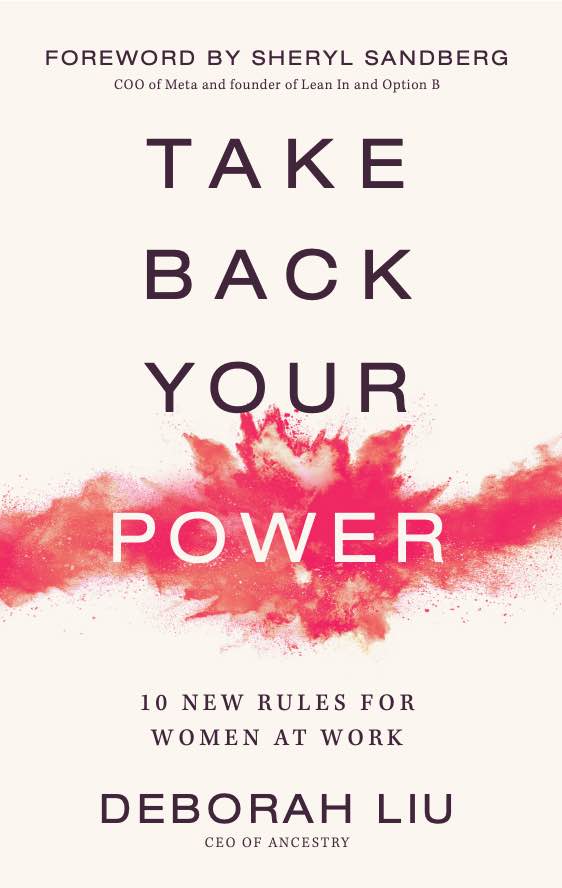Deepening Our Connection with God and Each Other: Jodi Benson and Deb Liu
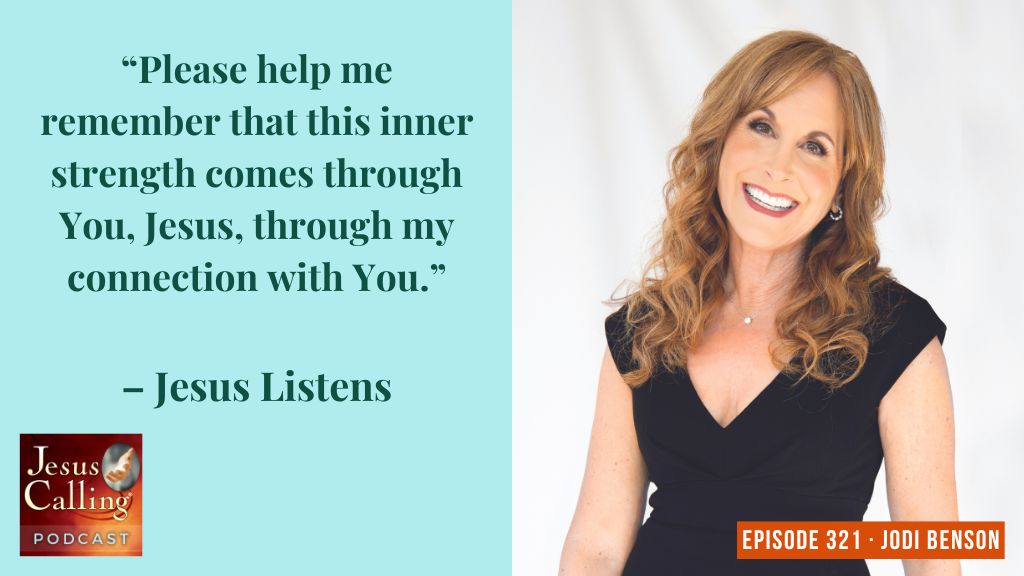
Jodi Benson: I love it, I love to get to meet people from all over the world and get to hear everyone’s stories about Ariel. So I’m singing “Part of Your World” all the time, which I love. I love getting to sing that song. Never, ever get tired of it. Life is good. Life is full. We are very blessed, very thankful.
Deepening Our Connection with God and Each Other: Jodi Benson and Deb Liu – Episode #321
Narrator: Welcome to the Jesus Calling Podcast. Connection is one of the most important components of having a satisfying and full life. Connection to our family, our friends, through our work, and what we bring to others in the world has the effect of making us feel like we are a part of something bigger than ourselves. Since God created us for connection, it is His desire that we connect with Him too. In Jeremiah 29:12, God beckons us to connect with Him simply because when we do, we can know that He hears us—and knowing that God’s ears are always open to us is the bedrock from which we can move forward confidently in life.
Our guests this week have made it their life’s purpose to connect with others in important ways—and recognize their desire for connection comes from their own connection to God. Jodi Benson is best known as the voice actor of Ariel in The Little Mermaid. She’s had the honor and privilege of creating a character that has been known by several generations of parents and children, building connections to millions through her artistry. Deb Liu is a second-generation Chinese immigrant. Connection with a community that was somewhat foreign to her when she was growing up was something Deb always longed for, which eventually she found when her family was embraced by their first real church home. She’s stayed mindful of how to build those connections all throughout her career at places like Facebook and eBay and at her current position as the CEO of Ancestry.com.
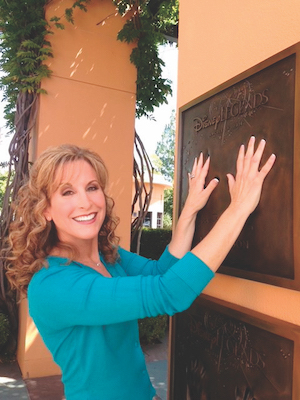
Let’s start with Jodi’s story.
Jodi: Hi, my name is Jodi Benson and I’m the original singing and speaking voice of Ariel in The Little Mermaid for the Walt Disney Company, as well as the voice of Barbie in Toy Story 2 and 3 and Thumbelina, and I am honored to be a Disney Legend.
Dreams of Broadway
I am from Rockford, Illinois, which is outside of Chicago, and I kind of started singing at the age of five, pretty much all the time, and sort of came out of the womb singing according to my mom. My sister taught me how to play the guitar when I was nine, and we started doing guitar masses at church on Sundays together, and that was just so much fun.
I think around the age of eight or nine, I told my mom, “I’d like to make a living, to sing, dance, and act and do Broadway.” Of course, I’d never seen a Broadway show or really seen hardly any theater except the community theater in my town. But for some reason, I just had this idea that I really wanted to find out what Broadway was all about. So that was sort of my big, big dream as an eight-year-old girl and continued to do whatever I could find to be a part of in Illinois and in my town. Through middle school and high school, there weren’t a ton of opportunities, but whenever I could find something to do in our high school—we did a musical each year, sometimes a musical and then a review at the end of the year. I would be a part of that and decided that I’d like to pursue this for college.
I got my first taste of real training when I was seventeen and I started college at Millikin University, and that’s really where that flame started to ignite for me as far as really thinking about pursuing musical theater. I really had an incredible opportunity at Millikin University to start portraying leading characters in musicals. And I was there for my freshman year and had the lead in the very first musical that I auditioned for, which was so shocking to me. And at that point, I thought, This is something I feel like God has given me a certain skill and a certain skill set to be able to investigate. Can I go down this path?
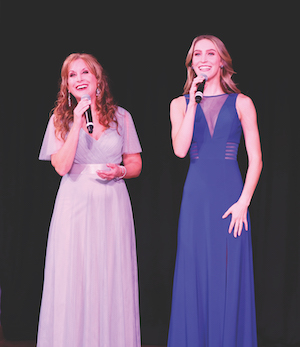
And as it turned out, it just really felt like God was prompting me to go to New York. So I got my equity card and it just started from that point on, you know? So I started working professionally when I was eighteen. And thankfully had continued on and I wasn’t a waitress at any point in time, which is really quite miraculous. But just to be able to feel like God had given me these gifts, and I just wanted to use them to the best ability that I could and be able to support myself and try to make a living doing this crazy business. So definitely God just really created the path very, very clearly for me and for my husband—he was my boyfriend at the time—and really pursued this industry knowing that this was God’s plan.
“Just to be able to feel like God had given me these gifts, and I just wanted to use them to the best ability that I could and be able to support myself and try to make a living doing this crazy business. So definitely God just really created the path very, very clearly for me.” – Jodi Benson
We moved to Los Angeles. We didn’t have a home. We didn’t really know what that was going to look like. But He knew, and He knew that if I could keep my eyes on Him on a daily basis, then I could trust Him. And historically, having seen throughout the journey of life that He has repeatedly been trustworthy in my life and how He has shown up. And for me, He usually shows up for me, for my family, and our marriage and with our kids in the 11th hour. Divine orchestration is truly the key because we can have this plan in our mind, you know? I can have this, I’m seventeen years old and I’ll have this plan. And my plan was just blown up because God’s plan was a thousand times better.
“Divine orchestration is truly the key because we can have this plan in our mind, you know? I can have this, I’m seventeen years old and I’ll have this plan. And my plan was just blown up because God’s plan was a thousand times better.” – Jodi Benson
A Memory, A Moment, and a Little Mermaid
Starting with The Walt Disney Company in 1987, I think, I was doing a Broadway musical called Smile with Howard Ashman and Marvin Hamlisch. And that Broadway show sadly closed very quickly. But when I auditioned for The Little Mermaid, I certainly had never dreamed in a million years that I would get the job because I had never done a voiceover before. I had never worked behind a microphone before. And it just so happened that God’s perfect plan was for me to become Ariel.
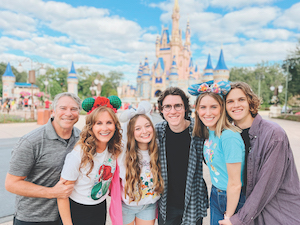
I learned and made a ton of mistakes along the way, but as I look back on this journey of thirty-five-plus years now, it is truly a ministry. It’s such an honor and such a blessing to have the opportunity to be the voice of Ariel, but also to just come in contact with so many amazing fans around the world. And we are in our sixth—I think—generation now of families who have started to fall in love with Ariel. And it’s just a huge honor to be a small part of the story of each one of these people that get to share their story of what Ariel means to them and how they grew up with this character and their relationship to the film and to the character.
It’s a huge responsibility, and I take it very seriously. I do want to be able to be part of that legacy and to bring that integrity to the character, to the original sound of the film. And that’s my job, is to be able to let you have that memory. And I get to be a part of that. And it’s just absolutely beautiful.
God’s Little Flashlight
way, and this analogy and this sort of metaphor was given to me by a friend one time. Let’s say you’re taking a walk at night and it’s completely dark. And you have your little flashlight and your flashlight gives you the next step where your footing is going to land. Just the next step, not a half a mile, not a half a block, not even six feet. I put my flashlight and it gives me the next safe place to put my footing and to land that next step. That’s pretty much what God wants to do with me. I mean, He doesn’t need me to see a half a block ahead. He doesn’t need me to see a half a year ahead. He needs me to take the next step, which sometimes is a daily step. Sometimes it’s an hourly step. And that’s very hard for a planner like me, to not be able to have this big, huge picture. But honestly, if He did, He knew I couldn’t handle it. I mean, if He showed me at seventeen or at twenty-one or at twenty-five things that were five years in advance, He knew I wouldn’t be able to handle it. That’s how gracious and loving and kind He is. So He gives me just enough that I can handle.
“If God showed me at seventeen or at twenty-one or at twenty-five things that were five years in advance, He knew I wouldn’t be able to handle it. That’s how gracious and loving and kind He is. So He gives me just enough that I can handle.” – Jodi Benson
So the whole journey is a faith walk. The whole journey is definitely letting go and doing a trust fall. It really is. But after all these years of walking as a believer, I know that He shows up at the last moment. And again, I can trust Him.
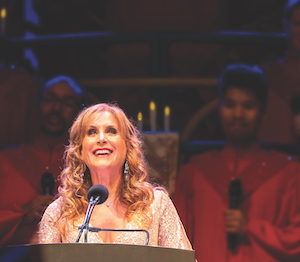
There are times I can be pretty frustrated with God. Pretty frustrated. And He can handle that. He is okay with my level of frustration or disappointment or my plethora of questions, especially the why questions and He can handle all that mess. I just have to bring myself to Him as messy as I am for that day in whatever that looks like.
He doesn’t need me to be a certain way, do a certain thing, prepare myself in a certain way, and then, Hey, I can have this conversation with you, God. He’s like, “You just need to come to me, period, in whatever way, shape, and form that looks like.” And it can be very messy. It can be in tears. It can be, again, in frustration. It can be in disappointment in a season of questioning that whole, Why is this going on? Why is this happening to this person? And He can handle me in any way that I present myself to Him. And I think that’s brought tremendous peace to me to know that it’s not a destination. It’s a daily process.
“He can handle me in any way that I present myself to Him.” – Jodi Benson
I have used Jesus Calling as devotionals for many, many years. I love it. I love getting to have my Jesus Calling devotional and being able to really listen and to hear from God for the day. It gets me into the Word each day, which is vitally important for me. And the days when I don’t, I know the difference. It definitely makes the difference when I have missed that. So I think, again, it helps me to focus, helps me to get my heart in the right place, helps me to be able to to listen clearly to what God has for me for that day. And when I’ve missed it, it makes a huge difference because then I can sense sort of the chaos coming in, a little bit of frustration, a little anxiety, a little bit of sadness, whatever starts weaving in through the day when I have not set my heart into the right place to start the day off with for me. So all of the devotionals have been really so life-giving for me.
The Gift of Encouraging Others
You know, as I’m folding laundry or doing whatever little task I’m doing here at the house, God will bring someone to my mind. I will stop. I will text that person, “Hey, thinking about you right now, just praying, hoping that your day is blessed.” And you know that person will respond back like, “Wow, that’s crazy that you just did that because I was just thinking of you,” or, “Yes, I do really appreciate your prayers.” So I really do want to just be available to join Him in His work, whatever that looks like. I know that that’s a gift that God has given me, is to lift up and encourage others.
I think sometimes we make it to be much more complicated than it needs to be. The beauty of it is that I don’t need to have it all together because then I don’t need God, and God doesn’t really shine through to others, to be able to let them see His light and not let them be staring at me, you know, but to see God through me, that’s the whole thing. So in my weakness, He is strong. And I’m learning how to feel comfortable in my failures and in my weakness. That’s been challenging. That’s hard. But I think I’m becoming more and more comfortable with the fact that I do not have it all together. And honestly, I really don’t want to have it all together because then the focus gets shifted, especially with other people who are looking at me in certain ways, whether it’s what I do for a living or when I’m standing on stage, I want to make sure that the focus is not on me. The focus is on the one that lives and breathes and works through me. That’s what I want the focus on.
And so as I’ve gotten older, it’s become much clearer to me what my daily calling is. And if I keep myself tuned in to God and I can daily ask Him, you know, “How do I join you in your work?” Like I prayed this morning, “How can I be light and salt?” That gives me daily purpose and that reduces any type of stress or anxiety or pressure, which then kind of immobilizes me. If I get myself all wrapped up in the past or I get myself all wrapped up in tomorrow, I kind of lose what it is that He wants me to do today. So I try to keep it simple. And I think if I do that, it’s a peaceful day. It’s definitely a peaceful day for me.
“If I get myself all wrapped up in the past or I get myself all wrapped up in tomorrow, I kind of lose what it is that He wants me to do today. So I try to keep it simple.” – Jodi Benson
Narrator: To learn more about Jodi’s story, check out her book, Part of My World.
Stay tuned to Deb Liu’s story after a brief message.
When We’re Looking for Connection, Jesus Listens
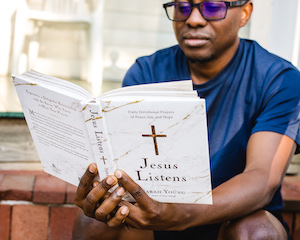
Sometimes life can be really stressful, whether it’s personal difficulties or world issues that make us feel overwhelmed. When we’re looking for hope and connection amid struggle, God is still there, ready for us to turn to him in prayer.
That’s why Sarah Young wrote Jesus Listens: to deliver a message of peace, love and hope to her readers every day. Jesus Listens is a 365-day prayer devotional with short, heartfelt prayers based on scripture, written to deepen your relationship with God.
Learn more about Jesus Listens and download a free sample.
Narrator: Our next guest is Deb Liu, CEO of Ancestry.com. Born in New York City, Deb’s life changed dramatically when she and her family moved to South Carolina to pursue a more equitable life. Facing marginalization and discrimination, all Deb really wanted was to feel connected. This desire underscored the work she would end up doing at companies like eBay and Facebook and defines the work she does in her role as CEO at Ancestry.com. As a pioneering female executive in these spaces, she credits her connection to God for keeping her grounded and resolute to fight for diversity, engagement, and inclusivity in today’s workplaces.
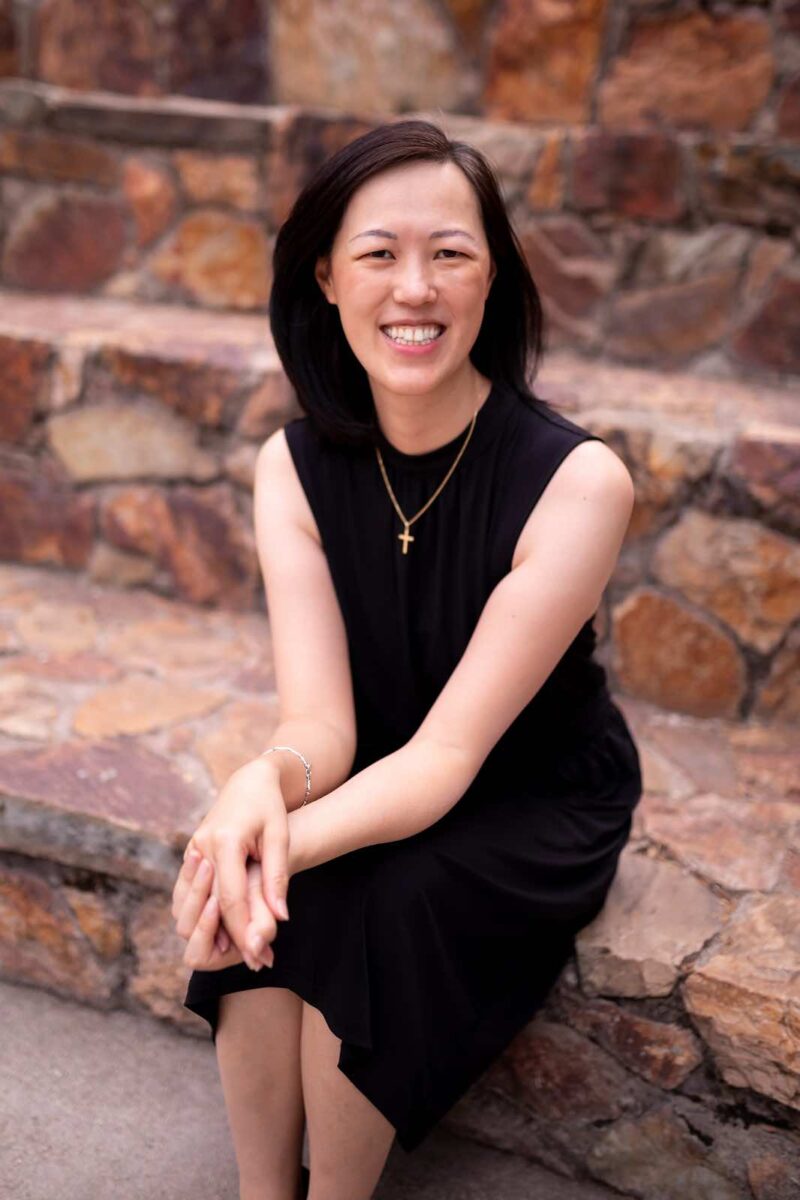
Deb Liu: I’m Deb Liu, and I’m the president and CEO of Ancestry, a thirty-five-year-old company that’s the leader in DNA and family history.
I think I’ve always wanted to see the connection. I really struggled with connection growing up being so different. And so when I had the opportunity to work at Facebook and Ancestry, I think change builds companies and products and work with people who are about connecting the world. Even today, in the work I do at Ancestry, it’s about connecting people with their own history. You know, the work that we do is to really help people discover their own past, to discover new family members, discover something about themselves they never knew. And part of what attracted me here was that we’re one human family, and we’re way more interconnected than you can ever imagine.
“The work I do at Ancestry, it’s about connecting people with their own history. . . . We’re one human family, and we’re way more interconnected than you could ever imagine.” – Deb Liu
Seeking Connection Amidst Discrimination
My parents and all of my relatives lived in a small area in New York called Queens. And I grew up my first six years really close to everybody around me. I spoke Chinese with my family. It never occurred to me that was different than anyone else.
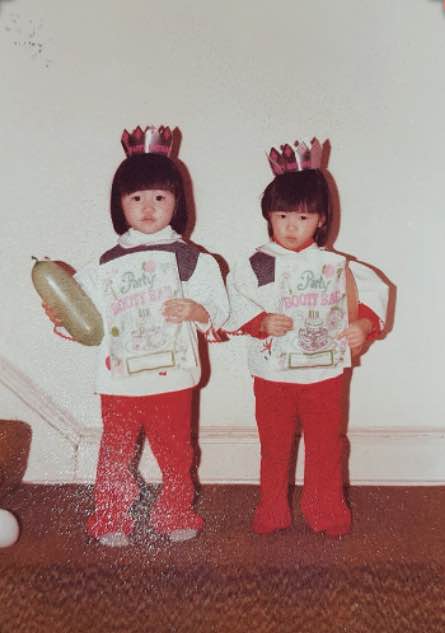
Then when I was six, my parents decided to move to South Carolina, a place they had never even been to and barely had ever heard of. They did this because my dad was being discriminated against at work. He was given the title “technician” in the work he was doing, but he couldn’t get the engineering recognition he had, even though he had a certified engineering degree in America. And so he got a call from a friend of his who said, “They don’t discriminate in the government. Come to South Carolina, I can get you a job with the government.” And my parents picked up our entire family, sold the house, and moved to a place they had never been.
Being one of the few Asian Americans in South Carolina, it was very hard. It was less than 1% Asian there when I was growing up, and it was very difficult to be the other, to be different. What was most difficult was people would come up to us on the street and actually say, “Why don’t you go back to where you came from?” People would say, “Where are you from?” When I would say, “New York,” they said, “No, really.”
Every single day I was somebody who didn’t belong. The people around me were told that I was strange, that the food I ate was strange, that I spoke a different language, and I looked different, I just felt so alienated from all the people around me and it really transformed the way I looked at the world. The racial bullying, the broken windows, our house was egged. What people said to my parents—they had a resilience I could never have imagined. And I allowed that to really deeply affect how I looked at the world.
In so many different ways, the things that were turning points in my life were about what our race was, and it was so difficult to grow up knowing that. You know, so much good can come out of so much bad, and yet it did leave a scar.
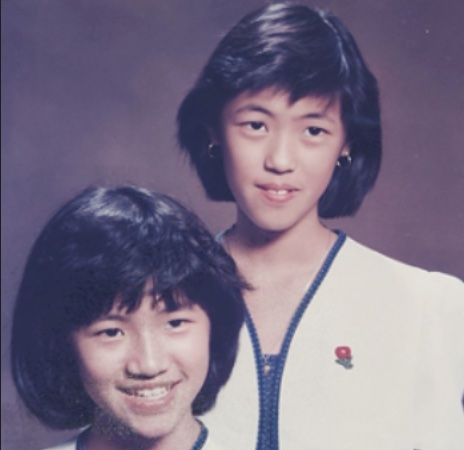
The strangest part for me was that my parents, every time we came home and said something, they would just say, “Ignore it.” That was their answer to everything. And I just didn’t understand how they could be okay with that. But they didn’t live such different lives. They’d grown up with, you know, much less. They had left countries that were at war. They had gone through so much that was so different than anything I could ever imagine. And so they had this resilience that said, “This is a lesser experience. This is okay. We are okay. We’re safe.” Whereas, you know, at one point my dad was so hungry that he didn’t have food, so he ate rice and milk for every meal. When they were young and poor, my father’s family didn’t have enough meat to go around, and they had eight children.
That’s the kind of life they had grown up with. And so for my father, who passed away ten years ago, he told me that this was his American Dream, that growing up in a small town in the South, having a small house, and raising his family and being safe was more than he could have ever asked for. And so I think that that really changed the way I looked at the world.
I had the sense that I was going to show everybody—I was going to show everybody in the small town that I was going to make something of myself. And I used that as rocket fuel. I use that negative energy as a thing to propel me for it.
I got through college. I graduated with high honors. I went on to get a job at Boston Consulting Group, and then I went to Stanford to get my graduate school degree. And so everything that I had wanted, I achieved. I checked all those boxes, and then I got to the working world, and I kept achieving and achieving.
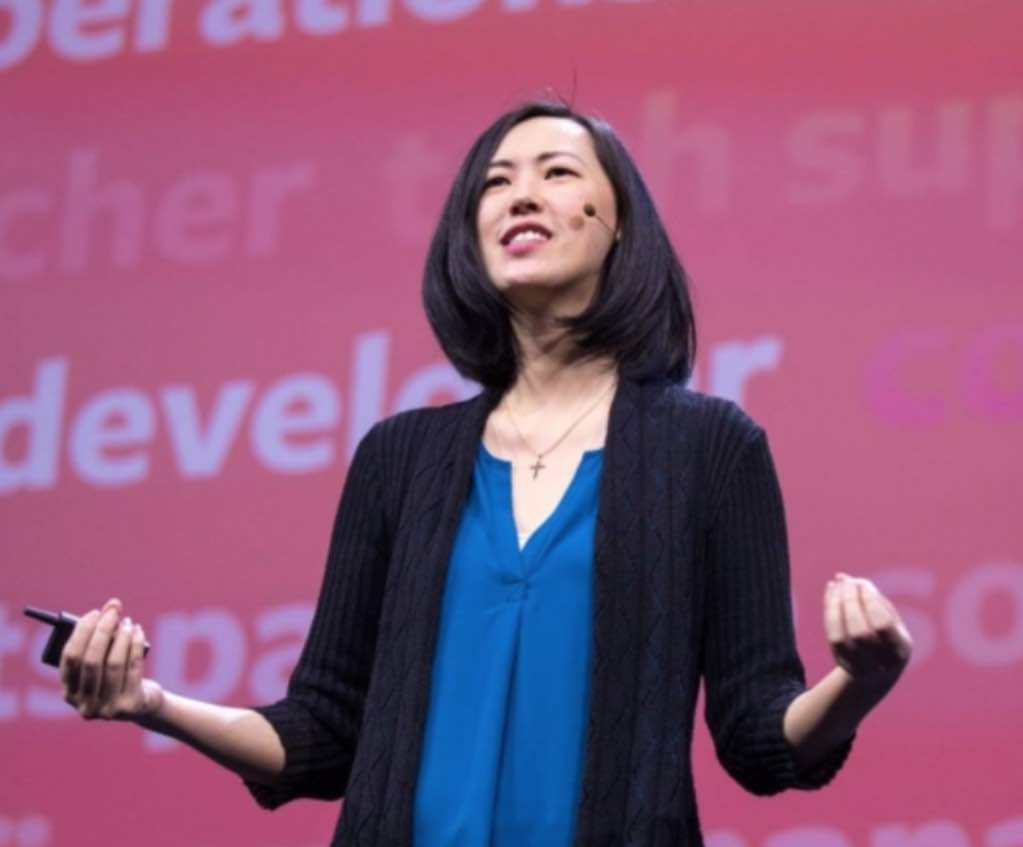
I had run a number of different products, including building multibillion-dollar businesses at Facebook. And then one day, Sheryl Sandberg says to me, “You can stop fighting now.” And I looked at her and I said, “Oh, my gosh.” I realized exactly what I had been doing, that I had taken that negative energy of someone else and used it as fuel. But as you know, rocket fuel is extremely combustible. It can burn up everything around it. And that was the moment I realized the thing that got me to where I needed to go was no longer going to work for me, and I had to change my narrative.
“I was going to show everybody in the small town that I was going to make something of myself. And I used that as rocket fuel. . . . But rocket fuel is extremely combustible. It can burn up everything around it. And I realized the thing that got me to where I needed to go was no longer going to work for me, and I had to change my narrative.” – Deb Liu
Being in tech, being a person of faith is something that is a little bit different. You know, it’s not it’s not like the South, the Bible Belt where I grew up. In tech, people see religion with suspicion. They see the actions. They’ve been hurt by a lot of people of faith. They’ve seen the actions of people of faith. And they’re very skeptical.
It has been very interesting because I get a lot of questions. You know, “How could someone who’s a successful leader believe in something that is not real or you can’t see?” And it’s opened a lot of doors to conversation. And again, I think that faith is really witnessing through your actions. It’s not telling people, “Hey, here’s what you should believe.” It’s saying, “Hey, this is my faith, and I hope that you learn something from it, if that’s what you want to do.” And so my job is to bear witness with every single thing that I choose to do with my life.
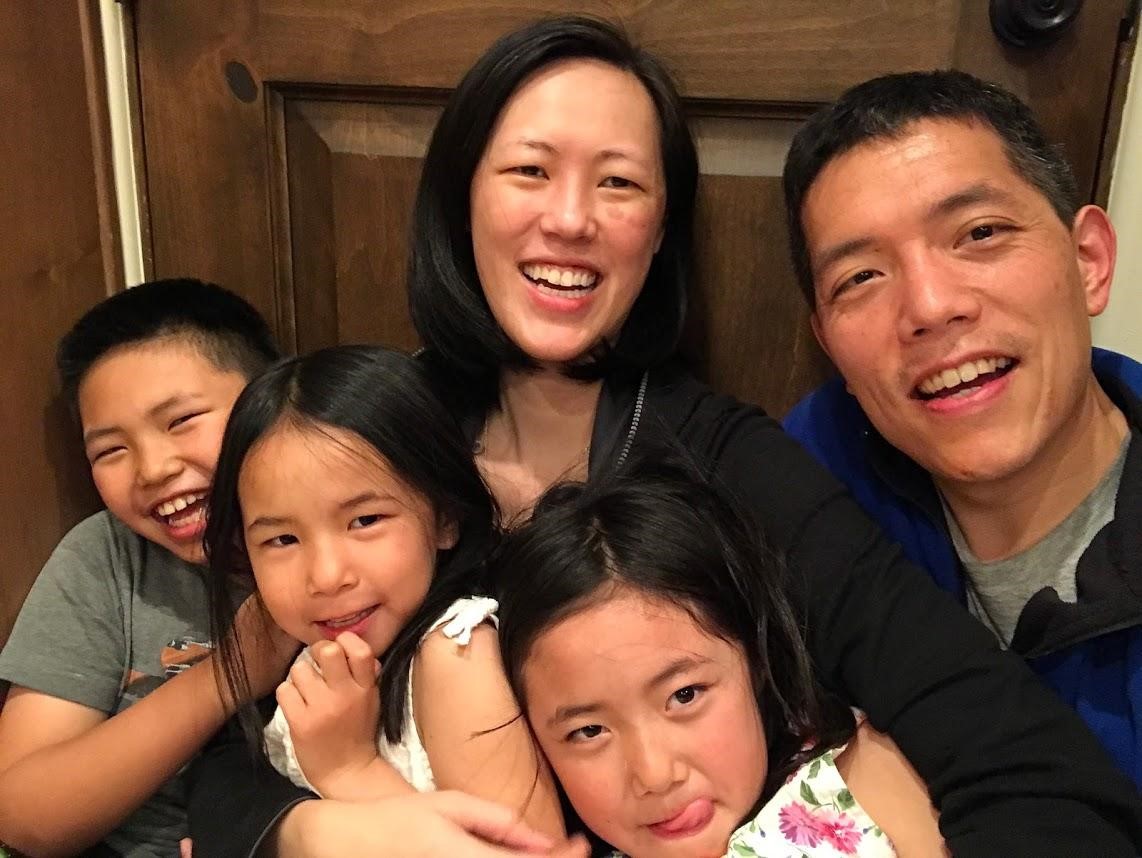
I think as leaders in the workplace, as a woman in business, as a minority woman, if we’re not tapping into the superpowers of half the work the work population of women, as well as those who are who are maybe underrepresented minorities, we’re actually losing out on all of the richness that they can offer: all the diversity, all the opinions, all of the product ideas, all of the things they could build. And so I feel like when we don’t allow part of the world to express their ideas and invest in their success, we’re actually making the world worse off actively. And so instead, what I do in my world is I really want to open doors for people, you know, give them the courage to speak up, to fund their ideas, to connect them with opportunities. And that’s really something I’ve done throughout my career.
Part of the work that I’m doing is, How do we help everyone get to their greatest potential? God gave us all these gifts. And if we say, “You know what, your gifts don’t matter because you’re lesser to a group of people,” think about what we’re leaving behind.
I think we have so much more power than we give ourselves credit for. And every time we say, “You know what, I don’t have power. I don’t have the power to change the circumstance.” But you have so much more opportunity to change your circumstance, to take control, than you think you do. And I think we teach people, “Hey, we should just take what comes,” but we can bend the arc of history. Think of those people who have made it, who have changed entire societies and changed people’s lives—both good and bad—with the choices they make. I think we are given those same choices to do good or to hurt others every single day. And I think if we choose to bless others, to be people of grace, I think that amplifies.
You know, they say that happiness is contagious, that when you’re around optimists, people are more optimistic. And I think that’s true. And I think each moment you have in life is a choice. It’s a choice to lift others up or to tear others down, to create value in the world or to consume value in the world. And I think that that’s really why I wrote this book, is to say every time there’s a crossroads, choose the thing that’s going to give you the opportunity to influence things for the better in your life and others.
“I think each moment you have in life is a choice. It’s a choice to lift others up or to tear others down, to create value in the world or to consume value in the world.” – Deb Liu
Narrator: To learn more about Deb Liu, you can find her on social media. And check out her book, Take Your Power Back, wherever books are sold.
If you’d like to hear more stories about the power of connection, check out our interview with Tim Atwood.
Next Week: Ainsley Earhardt
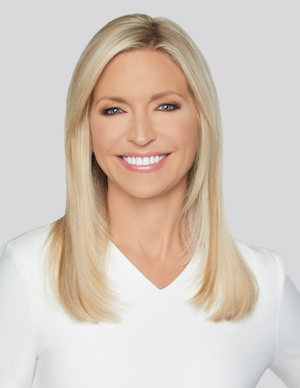
Narrator: Next time on the Jesus Calling Podcast, we’ll hear from Fox & Friends anchor Ainsley Earhardt, who shares how she strives to be authentic in her career and give glory to the One who has blessed her life.
Ainsley Earhardt: I said, “God, I’m ready to give You my life. I’m ready to change my life. And I want a purpose, please take my life and do with it as You may. I’m willing to follow You.”

